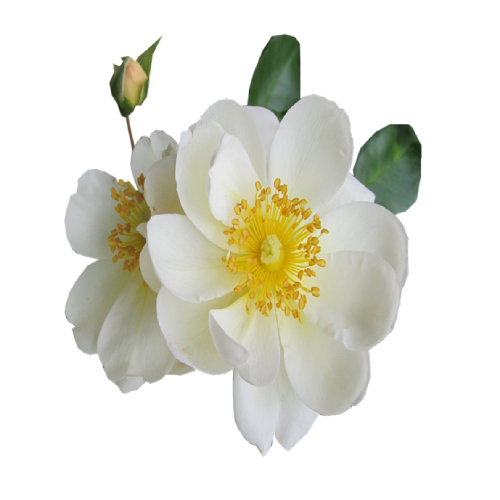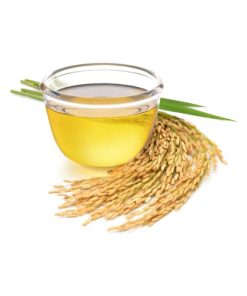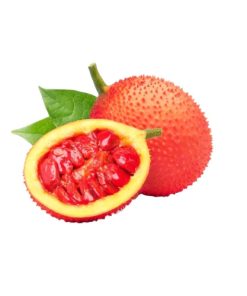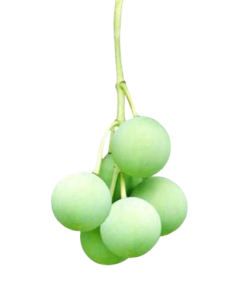PLANT DESCRIPTION
Camellia oil (camellia seed oil, tea seed oil) is extracted from the seeds of plants of the Camellia genus. Camellia oil is an important food and cosmetic product in Vietnam, China and to a lesser degree in Japan, the oil has been known in China for more than 1,000 years. The main species used for camellia oil production is Camellia oleifera and the oil extracted from the seeds of this species accounts for most of the world’s camellia oil.
Camellia oil is widely used in the cosmetics industry, including shampoos, lotions, hair conditioners, soaps, and lipsticks. Processing steps include harvesting of seeds, dehulling, cracking/flaking, cooking, and extraction with hydraulic presses. Camellia is a rich source of oleic acid. The cold-pressed oil contains over 79% omega-9 acids.
Tea seed oil finds widespread use as a cooking oil in Vietnam & China. The oil has a high smoke point and no odor and taste. Chefs prefer tea oil since crispy textures and coatings for tempura are achieved. The oil finds widespread use in other parts of South East Asia since it has a composition similar to olive oil. The oil has medicinal properties, including treatment of stomach aches, ringworm, and dandruff.
CAMELLIA OIL SPECIFICATION.
Appearance: Mobile liquid
Colour: Yellow to golden color
Odour: Typical oil
Flash point: N/A
Specific gravity at 20°C: 0.900 – 0.945
Refractive index at 20°C: 1.460 – 1.495
Chemical composition:
Palmitic acid (C16:0) 6.0 – 15%
Stearic acid (C18:0) 0.8 – 2.0%
Oleic acid (C18:1) 72 – 87%
Linoleic acid (C18:2) 5.0 – 14%
CAMELLIA OIL HEALTH BENEFITS
Camellia Seed Carrier Oil bears a striking resemblance to Olive Carrier Oil in terms of its nutrients and fatty acid profile. Indeed, it is sometimes called the world’s ‘Eastern Olive Oil’ or ‘Oriental Olive Oil’, being featured in eastern culinary applications as prominently as Olive Oil is in western nations. It is rich in polyunsaturated and monounsaturated fatty acids, including Oleic and Linoleic Acids. The content of Oleic Acids (which can exceed 80%) in particular is thought to be even higher than that of Olive Oil. Camellia Seed Oil is also high in skin-rejuvenating vitamins, minerals, and compounds, including Vitamin E, Vitamin A, Magnesium, Zinc, and Squalene lipids. These nutrients collectively make the oil exceptionally hydrating, moisturizing, and protective, with high antioxidative power and lasting cosmetic benefits.
Storage: Store in airtight containers in cool & dry place away from light & heat.
Caution: Possible skin sensitivity. Keep out of reach of children. Avoid contact with eyes, inner ears, and sensitive areas.
MSDS


MATERIAL SAFETY DATA SHEET
(according to Regulation (EU) No. 1907/2006)
Product name: Camellia Oil
Number: CAME0524
1. IDENTIFICATION OF SUBSTANCE/PREPARATION & COMPANY.
Product name: Camellia Oil
Manufacturer/Supplier: Australia Natural Products
Add: SE 51, 2 Mayfair Street, West Perth, WA 6005, Australia
Emergency telephone: +61 452101623
Email: [email protected]
2. COMPOSITION / INFORMATION ON INGREDIENTS.
Definition/Botanical Origin: The Camellia Oil obtained from the cold press of the seed kernels of Camellia oleifera original Vietnam
Composition: Camellia Oil 100% pure & natural
CAS No: 223748-12-7
EINECS: 310-127-6
INCI Name: Camellia oleifera Seed oil
3. HAZARDS IDENTIFICATION:
This product is not hazardous. Not dangerous for the environment.
H304 May be fatal if swallowed and enters airways
H315 Causes skin irritation
H317 May cause an allergic skin reaction
H319 Causes serious eye irritation
4. FIRST-AID MEASURES:
Inhalation: Remove from exposure site to fresh air. Keep at rest. Obtain medical attention.
Eye contact: Rinse immediately with plenty of water for at least 15 mins. Contact a doctor if symptoms persist.
Skin contact: Remove contaminated clothes. Wash thoroughly with soap & water, flush with plenty of water. If irritation persists, seek medical advice.
Ingestion: Rinse mouth out with water. Seek medical advice immediately.
Other: When assessing action take Risk & Safety Phrases into account (Section 15)
5. FIRE FIGHTING MEASURES.
Extinguishing media Use CO2, Dry Powder or Foam type Extinguishers, spraying extinguishing media to base of flames. Do not use direct water jet on burning material.
Special measures: Avoid vapour inhalation. Keep away from sources of ignition. Do not smoke. Wear positive pressure self-contained breathing apparatus & protective clothing.
Extinguishing procedures: Closed containers may build up pressure when exposed to heat and should be cooled with water spray.
6. ACCIDENTAL RELEASE MEASURES.
Personal precautions: Avoid inhalation & direct contact with skin & eyes. Use individual protective equipment (safety glasses, waterproof-boots, suitable protective clothing) in case of major spillages.
Environment precautions: Keep away from drains, soils, surface & groundwaters.
Cleaning up methods Remove all potential ignition sources. Contain spilled material. Cover for spillages: with an inert or non-combustible inorganic absorbent material, sweep up and remove to an approved disposal container. Observe state, federal & local disposal regulations.
7. HANDLING & STORAGE.
Precautions in handling: Apply good manufacturing practice & industrial hygiene practices, ensuring proper ventilation. Observe good personal hygiene, and do not eat, drink or smoke whilst handling.
Storage conditions: Store in tightly closed original container, in a cool, dry & ventilated area away from heat sources & protected from light. Keep air contact to a minimum.
Fire protection: Keep away from ignition sources & naked flames. Take precautions to avoid static discharges in working area.
8. EXPOSURE CONTROLS/PERSONAL PROTECTION.
Respiratory protection: Avoid breathing product vapour. Apply local ventilation where possible.
Ventilation: Ensure good ventilation of working area.
Hand protection: Avoid all skin contact. Use chemically resistant gloves if required.
Eye protection: Use safety glasses.
Work/Hygiene practices: Wash hands with soap & water after handling.
9. PHYSICAL & CHEMICAL PROPERTIES.
Appearance: Mobile liquid
Colour: Yellow to golden yellow color
Odour: Typical Camellia Oil
Specific gravity at 20°C: 0.900 – 0.945
Refractive index at 20°C: 1.460 – 1.495
Solubility in vegetable oils: Insoluble
Solubility in water: Insoluble
Flash point value: 100 °C
10. STABILITY & REACTIVITY.
Reactivity: It presents no significant reactivity hazards, by itself or in contact with water. Avoid contact with strong acids, alkali or oxidising agents.
Decomposition: Liable to cause smoke & acrid fumes during combustion: carbon monoxide, carbon dioxide & other non-identified organic compounds may be formed.
11. TOXICOLOGICAL INFORMATION.
According to current information, not classed as hazardous to health in normal industrial use.
12. ECOLOGICAL INFORMATION.
Biodegradability: Data not available
Precautions: Prevent surface contamination of soil, ground & surface water.
13. DISPOSAL CONSIDERATIONS.
Avoid disposing to drainage systems and into the environment. Seek expert advice.
14. TRANSPORT REGULATIONS.
Shipping by road (ADR/RID): This product is not considered as dangerous goods
Shipping by air (IATA): This product is not considered as dangerous goods
Shipping by sea (IMDG): This product is not considered as dangerous goods
UN number: not regulated
UN proper shipping name: not regulated
Transportation hazard class: not regulated
Label: Camellia Oil
15. REGULATORY INFORMATION. According to Directive 88/379/EEC
Hazards: Harmful
Symbols: n/a
Risk Phrases: Harmful if swallowed
Safety Phrases: If swallowed seek medical advice immediately and show the container / label
16. OTHER INFORMATION.
Cosmetics Directive – 7th Amendment – Not Restricted
Check maximum usage levels for skin care products.
PACKAGING:
Type
|
Suitability
|
Glass
|
Yes
|
Lacquer lined steel/tin
|
Yes
|
Aluminum
|
Yes
|
HDPE
|
Yes
|
SHELF LIFE:
Minimum 36 months from manufacturing date.
Q.C. REQUIREMENTS.
In-line with general product specification. Always satisfy suitability for specific application.
The data provided in this material safety data sheet is meant to represent typical data/analysis for this product and is correct to the best of our knowledge. The data was obtained from current and reliable sources, but is supplied without warranty, expressed or implied, regarding its’ correctness or accuracy. It is the user’s responsibility to determine safe conditions for the use of this product, and to assume liability for loss, injury, damage or expense arising from improper use of this product. The information provided does not constitute a contract to supply to any specification, or for any given application, and buyers should seek to verify their requirements and product use.











